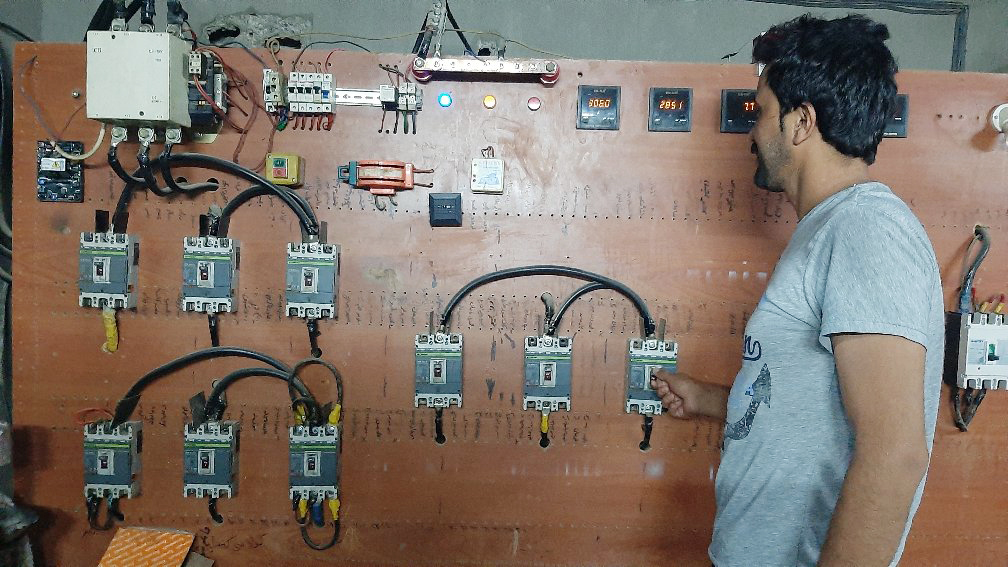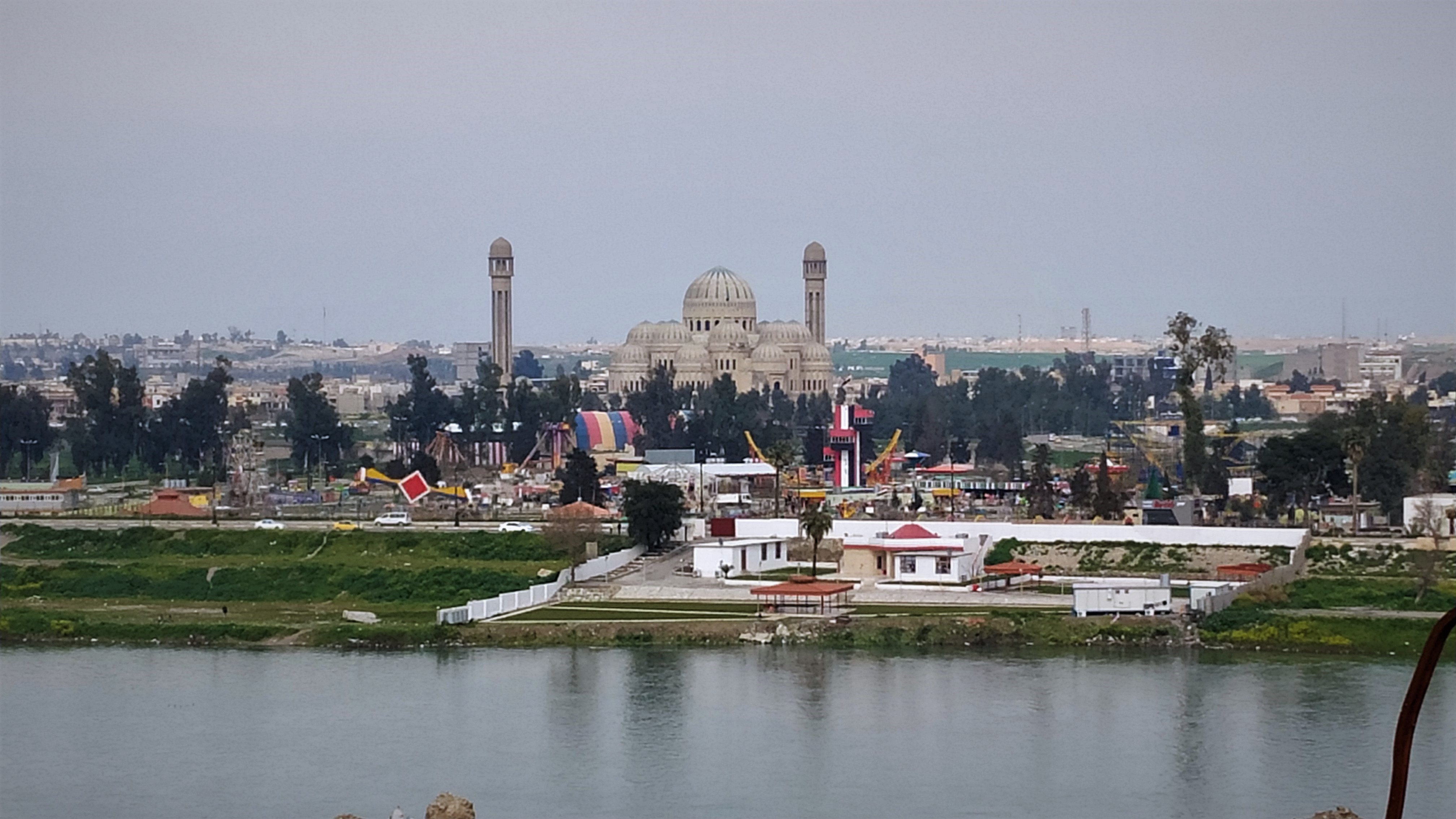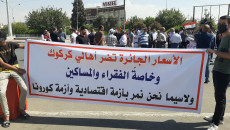In the café, Mahfouz Jassem, 65, sits and shares the conversation with those with him about the private electricity fees. He hits the domino hard on a wooden table, making a strong sound, then adding in an angry tone, "I and my family live in a house I own but it's like a rent.”
“I pay 100,000 dinars ($68) for 5 amps," in reference to the costly bills of private diesel power generators. He takes a second domino and says, "God helps those who live in the rent."
As usual, discontent recurs in Mosul, center of Ninewa province, at the beginning of each month when the local administrations the electricity tariff for private power generators per working hours, days before the end of the month.
Shortly, Facebook is overflowing with leaflets denouncing and indignant at the pricing that the majority of citizens cannot tolerate. This problem becomes the trend of the Mosulawi street for several days.
Mosul is nicknamed mother of two springs for the moderate spring that lasts from March up to May.
The rise in private electricity bills every month, especially in the months that witness a decrease in the supply with national electricity, particularly in blazing summer and freezing winter, ranges between 10-18 thousand Iraqi Dinars IQD ($7-12) so the total cost for every 5 amperes, which is the least a house consumes for more than 100 thousand dinars.
I and my family live in a house I own but it's like a rent.
Beside the national network of state-subsidized electricity supply all over Iraq, residential units and business projects rely on private generators for power supply to fill the gap of national power outage.
Following gulf war in 1991, Iraq’s infrastructure was sharply hit by the economic embargo on Saddam Hussein regime due to damage of many transmission lines and substations leaving the basic services provided by the state inadequate.
Few years later, the local authorities gave permission to installation of private diesel generators in the residential neighborhoods to provide power and fill in the national power outages as it could provide only half of the demand on power supply.
The cost of the power provided by private generators is couple of times double of power provided by the state thus people are obliged to consume as less as possible during national power outage in order to pay less for private diesel generators.

Taxi driver Fathi Al-Hayali says, "I did not subscrib with Kar. I got six amps and pay more than 100,000 dinars each month, while the debts accumulate for the national power bill because I cannot pay them both."
Ninewa provincial administration adopts a joint system with a "stubborn" committee that includes most of the private generators. The price is set after reading the operating hours counters for the generators within one month and for two parts of the city.
A private company called Kar, collecting electricity fees from residents in the part it serves, provides longer hours of national power supply than others affiliated to the Ninewa Electricity Directorate.
As for Ibrahim Jamal, he says, "Usually, the electricity bill of private generators in the month of April is much less than in other months. The national electricity improves a lot this month, and operating hours of the generators decrease, so the bill comes a little lower."
For April, Ninewa provincial administration has determined the fee for one ampere at 8,500-10,000 IQD for continuous operation of private generators in conjunction with the national electricity (24 hours) without a break.
Nineveh Governorate witnessed during this month a remarkable improvement in the national electrical service, 15-23 hours a day, as the weather get moderate and power consumption goes down leading to more hours of national power.
People claim that the owner’s profits are high as a result of this pricing, while owners of the private generator argue they pay millions of dinars for diesel, land rental costs and others such as breakdowns and workers’ wages.
The Mosulawis beleive that this pricing is unfair especially for few hours of operation and the local media began to poll people's opinions and document their anger.
The Central Committee set out with another meeting, which it held to absorb the anger of the street and has decided to reduce each operating ampere by 2,000 dinars for each subscriber.
However, generator owners believe that the operating costs are high, with high fuel prices and the lack of support for the product by the state. The price of one barrel of 220 liters of diesel ranges between 90,000-100,000 IQD.
Samir Ahmed, the owner of a private generator on the left side of Mosul, who is renting land belonging to the Sunni Endowment, says, "People are delusional that the owner's profits are excessive as a result of this pricing, but they forgot that we pay millions for diesel and millions more for land rental costs and other costs such as breakdowns and workers."
Iraq's electricity ministry has cited a number of causes for the prolonged and widespread cuts including sabotage attacks, shortages of fuel for power stations, and the suspension of energy supplies from neighboring Iran.
Sabotage acts have lately found power transmission towers a hot target.
The Iraqi ministry of electricity said in a statement last August that 13 towers for transmission of power were damaged by the militants in 48 hours in Ninawa, Kirkuk and Salahaddin, including Kirkuk-Gayarra (in Mosul) by IED, causing damage to five towers.
As for the representatives of Ninewa at the Iraqi parliament, they believe that it is necessary for the generators to be subsidized with fuel by the state, so that the support will be reflected in the reduction of operating costs, which in turn lowers bills for subscribers.
Shirwan Al-Dobardani, an MP from Ninewa, held a meeting chaired by the participation of a number of deputies in the parliament office in Mosul, pledging to search for serious and radical measures to solve this problem.






